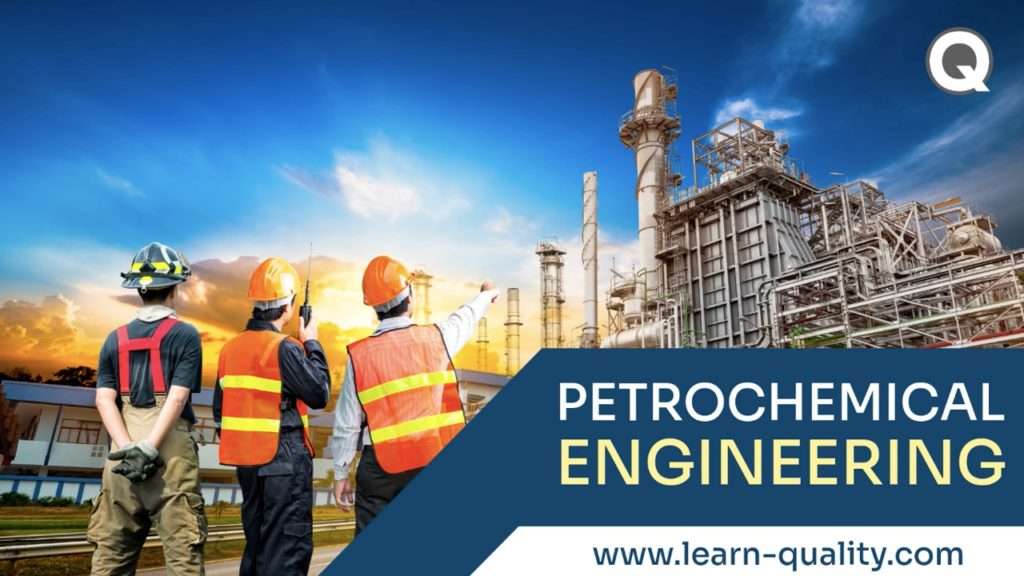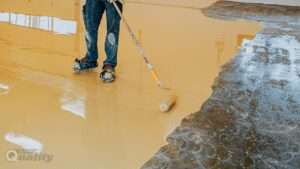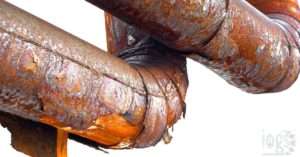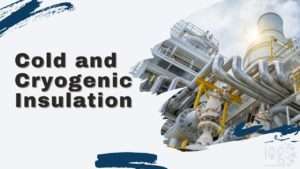Are you someone who is looking to find out more about petroleum engineering? Do you want to know about petrochemical engineering and how it works? If you said yes to both these questions then keep scrolling down because we have just what you have been looking for.
What do petroleum engineers do?
Petroleum engineers play a vital role in maintaining the world economy. They ensure that the extraction of oil and gas is safely done. They make sure that the entire process is done efficiently so that the product is more affordable to the customers.
If we talk about the involvement of the petroleum engineers in the oil and gas fields then it is important to bring to attention that they are actively part of the entire process.
Types of petroleum engineer
Here is a list of categories in which petroleum engineers are divided into:
-
Petroleum geologists
Petroleum geologists make sure that they find hydrocarbons. They analyse subsurface structures. They do this with the help of geological and geophysical methods.
-
Reservoir engineers
Reservoir engineers help in the optimisation of the production of oil and gas. The optimisation process is only possible with the help of proper placement, production levels and enhanced oil recovery techniques. The Reservoir engineers use various computer simulations to identify the risks associated with the process. They also use the same method to make forecasts on reservoir potential.
-
Production engineers
Production engineers are known for managing the interface. They make sure the interface between the reservoir and the well through tasks is done properly. The tasks include perforations, sand control, artificial lift, downhole flow control and monitoring equipment. Production engineers select the surface equipment to separate the fluids that are being produced. These fluids include oil, natural gas and water.
-
Drilling engineers
Drilling engineers deal with the technical aspects. They look after both the production and injection wells. Drilling engineers work in multidisciplinary teams. Their teams include engineers from different backgrounds, scientists and contractors.
-
Quality engineer
Quality engineers or QA/QC Engineers make sure that the work gets done in a specified time, following the guidelines given to them by the company. They govern different regulations, prepare and document reports related to the quality of the entire process.
-
Safety engineers
Safety engineers are there to enforce the safety rules and regulations. They make sure that everything is done following the health and safety requirements.
Responsibilities of an Engineer in Petroleum Industry
The responsibilities of every engineer vary from the other; depending on the role, they have been assigned.
Here is a list of responsibilities that engineers might be asked to perform:
- One of the major responsibilities of engineers includes liaising with geoscientists
- They also look after the production
- Some engineers have to liaison with commercial managers to interpret the good logging results
- They also predict the potential of the production
- Another important responsibility of engineers is to compile a detailed development plan of the reservoir performance
- They do this using different mathematical methods
- Engineers are also responsible for selecting an optimal tube size
- They look after suitable equipment to make sure different functions are performed properly
- They design the complete process which is the main part of the well that helps in communicating with the reservoir fluids
- Engineers design different systems to make sure that the well flows properly
- Engineers manage problems about the fluid behaviour
- They also deal with the problems of the production chemistry
- One responsibility is to evaluate and recommend the rate of flow by enhancing the hydraulic fracture
- They force fluid into a well for fracturing the rock
- They look after the acid treatment so that they can keep a lookout when the rock erodes and can help improve the flow path
- Engineers help to manage and control both horizontal and multilateral wells that have branches underneath
- They use well and reservoirs with the help of remote sensing technology
- They also deal with surveillance data that helps in managing the value of the reservoir
- They are responsible for deciding on an appropriate engineering intervention
- They understand and then manage how a set of wells interact with each other
- They are responsible for dealing with contractor relationships
- Engineers look at the health, safety and environmental protocols
- They supervise well site operations
- They also train and supervise different crew members
- They ensure that everyone around them is working as a team
- They also ensure that deadlines are met and the clients are satisfied
- They liaison with different departments to ensure the progress of the multiple on-going projects
- They are responsible for the maintenance of the equipment
- Engineers liaison with different clients to keep them in the loop
Petroleum Engineer Salary
The salaries of engineers vary, depending on the nature of their job.
Here is what you can expect to get if you are applying for the position of petroleum engineer:
- In this region, if you are only starting, you should be prepared to get something from £25,000 to £35,000
- If you have a relevant PhD in the field, you can expect something more
- The starting off salary figures are for those who are applying to international oil companies
- A similar salary range is for graduates who get into training programs before signing up for a full-time job
- If you are applying in a comparatively new company, you should expect something lower in terms of the salary
- If you are an experienced petroleum engineer then you should expect something from £55,000 to £95,000
- If the demand is higher, an experienced freelance engineer may even earn over £1,000/day
Working hours in Petroleum Industry
If we talk about the work hours in the field of petroleum engineering then they are the typical 8 hours of the day.
It means that if you are thinking of getting into the field, you should keep in mind that your normal workday would start at 9 am and end at 5 pm. However, like any other profession, there might be days when you would be required to put in extra hours.
If you were working for a big company, you would know that they usually have flexible working hours. There is a routine of working in shifts so that no one person is overburdened with work. If you were on an offshore assignment, you would be required to work for 12 hours straight. This could go on for at least two weeks. One plus point is that the petroleum engineers also get a two-week break to make it up for their thought schedule.
What to expect in Petroleum Industry?
Here is what you should expect from your life when working in the petroleum engineering field:
- If you are a beginner, you should expect the first three years of your professional career in the rig site
- When the engineers gain experience and put in their time and effort, they start working in the office
- Once engineers start working in the office, they closely work with geologists on the oil field
- The senior geologists are located onshore
- With the help of remote sensing technology, engineers should expect to work with high bandwidth that works with global networks and visualisation systems
- Once you reach a position where you can make decisions, you must expect to work with fewer people in the field and make more decisions in the office
- You can also expect to be self-employed or do freelance work in the future
- Through outsourcing, there have been many opportunities that have been created for engineers with more than five years of professional experience
- If you want to sign a contract, you should do that by first determining the project status and going through the oil prices
- More women are being recruited in this profession with the help of awareness about this field of work
- When you start working in the oil field, you will see a mix of different cultures
- If you are on an offshore assignment, you will have to start living in a communal system
- If you are working in the field, you might have to make do with inhospitable living conditions
- You should be mentally and physically prepared for the job
- The onshore and offshore routine can get a little overwhelming for some people
- You should be ready to compromise on your social life
- You would sometimes be required to travel within a day or two
- You would not always be present at home with your family
- Overseas travel is another feature that is part and parcel of this profession
- You should be prepared to change your location on a short notice
Qualifications to Work for Petroleum Industry
Like any other profession, prior qualification is a prerequisite for petroleum engineering as well. If you have applied for a job at a reputable company, your employer would first check for your qualifications in the relevant field.
Here is a list of qualifications that employers look for when hiring engineers at the job:
- Aeronautical engineering
- Astrophysics
- Chemical engineering
- Civil engineering
- Earth sciences
- Mathematics
- Mechanical engineering
- Petroleum engineering
Skills Required to Grab Jobs in Petroleum Industry
If you aim to work in petroleum engineering or the petrochemical engineering field then you need a skill set.
Here is a list of skills that you should possess if your goal is to become an engineer:
- Technical capabilities
- Business awareness
- Analytical skills
- Creative skills
- Managerial potential
- Self-motivated
- Ability to work internationally
- Ability to work in offshore environments
- Team skills
- Self-driven
- Enthusiasm
- Problem solver
- Willingness to tackle challenges
- Flexibility
- Multitasker
- Computer literate
- Relevant training
- Different certifications
Do I Need any Work Experience Before Applying for a Job?
If you are only starting, you should have a good qualification and a skill set that shows in your work. If you are someone who wants to switch jobs then you should know that there is a lot of competition in the market. Yes, you read that correctly. You can look for different opportunities based on your years of experience and area of expertise.
Employers
If you want to work with prestigious companies then you should be ready to relocate. Most of the oil and gas explorations are based overseas.
If you are good at what you do then the field of petroleum engineering and petrochemical engineering can take you places you had only thought of going to.
Here is a list of settings where you would find the right kind of employment:
- You should look up operating companies
- You can also look for production companies, mostly the ones that are international oil companies to get a better job
- Apply to engineering consultancies
- Send your resume to integrated service providers
- Apply for a position at a specialist plant construction
Professional Development Institutions
If you are aiming to apply to a multinational corporation, you need to keep in mind certain aspects such as your personal and professional development as an individual.
When applying to a reputable company, make sure you have already taken oil and gas courses as part of your professional development.
Here is a list of the relevant professional engineering institutions you can take up the oil and gas courses from:
- The Institute for Oil & Gas Sector (IOGS)
- American Petroleum Institute (API)
You can also check the below listed for further training:
- OPITO
- IOGS
Career Prospects and Skill Development Courses
Considering the current world order, the engineering process will continue to rise. You must keep up the hard work and trust yourself when applying for a job in the petroleum engineering field. Do not lose hope, keep applying!
There are several skill development courses that you should take up to make yourself apart from the crowd in the job market, the following 4 skill development work fields are most popular;
Did you find this article useful? Let us know in the comments below.











